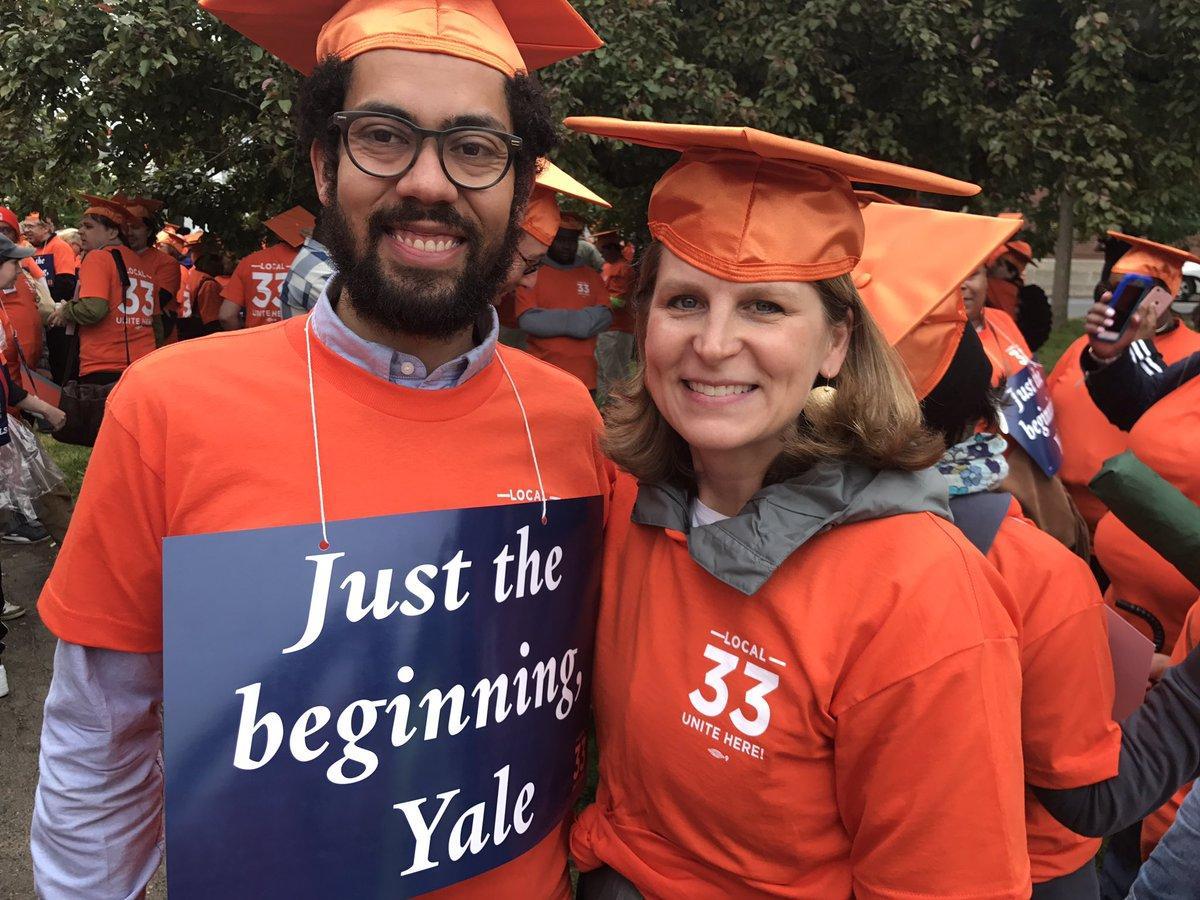A historic 30-year organizing effort was victorious on Jan. 13, adding 3,000 new union members at Yale University as graduate students who serve as teachers and researchers voted in a landslide to form a union with Local 33 of UNITE HERE.
The graduate teachers and researchers from all departments and professional schools went union 1,860–179—91%–9%—in the National Labor Relations Board-run election.
Their triumph continues a wave of union victories at private universities around the country, as well as organizing by workers at Starbucks, Amazon and other major corporations.
The underpaid, overworked grad student teachers and researchers are one of the key groups unions are targeting. They’re also one of the mass of exploited workers who have had it up to here with corporate and university greed, and responded with record union victories.
Leading up to the election, the grad teachers and researchers delivered thousands of union cards to Yale President Peter Salovey at a huge rally and march attended by UNITE HERE Locals 34 and 35 at Yale—representing clerical, technical, service and maintenance workers there—as well as supporters from the community.
They stood in solidarity with Local 33 because they understood that enlarging the union movement by 3,000 more workers would give strength to all efforts to win better wages and working conditions.
New Haven Rising, the community affiliate of UNITE HERE at Yale, knocked on doors throughout the city, connecting the union election with their campaign for Yale to hire from Black and Latino neighborhoods. Residents put “Local 33 Union Yes” signs on their doors and windows to show support.
“For decades our campaign has fought to improve the working conditions of graduate workers on our campus,” said Madison Rackear, a grad researcher from the Genetics Department. “We’ve been inspired by the union standard that our sibling unions Locals 34 and 35 achieved through decades of organizing. I’m looking forward to winning a great first contract that will make graduate education at Yale more accessible to other working-class scholars.”
Workers have cited better dental and vision coverage, more accessible mental health care, guaranteed time off, protections for international grad workers, strong grievance procedures, cost of living adjustments and increased transparency as just some of the reasons motivating the current organizing drive.
“COVID (the coronavirus) has really highlighted the precarity of our work and the need for stronger workplace protections,” said Adam Waters, a graduate teacher from the History Department. “The results of this election show that grad workers agree: Our work makes Yale work and we deserve a seat at the table through our union and a contract.”
“I’ve been looking forward to this day for years,” said Ridge Liu from the Physics Department. “Grad workers need better pay, better health care and real grievance procedures. Generations of grad workers have organized before us, and I’m really excited to finally win.
“I know our first contract will be one that future generations of grad workers will be able to build on. It’s great that the Yale administration did not engage in the same level of union-busting as they have in the past, and I hope they will bargain in good faith moving forward,” Liu added.
“We’ve always stood with the grad teachers and researchers in their fight for respect and union recognition. I couldn’t be happier to welcome them into the UNITE HERE family here at Yale,” said Bob Proto, president of Yale’s service and maintenance union, Local 35.
“I’m proud of the productive problem-solving relationship union workers have built with the university over the years—but we know how to fight for what we deserve, too. I’m excited and hopeful to see what wins Local 33 secures in their first contract.”
Graduate workers at Yale maintained one of the country’s longest continuous union representation drives against fierce opposition from the Yale administration, including previous refusal to recognize the results of NLRB elections. If the Yale administration recognizes the results of this election, teachers and researchers from Yale’s graduate and professional programs will begin the process of negotiating their first union contract.

